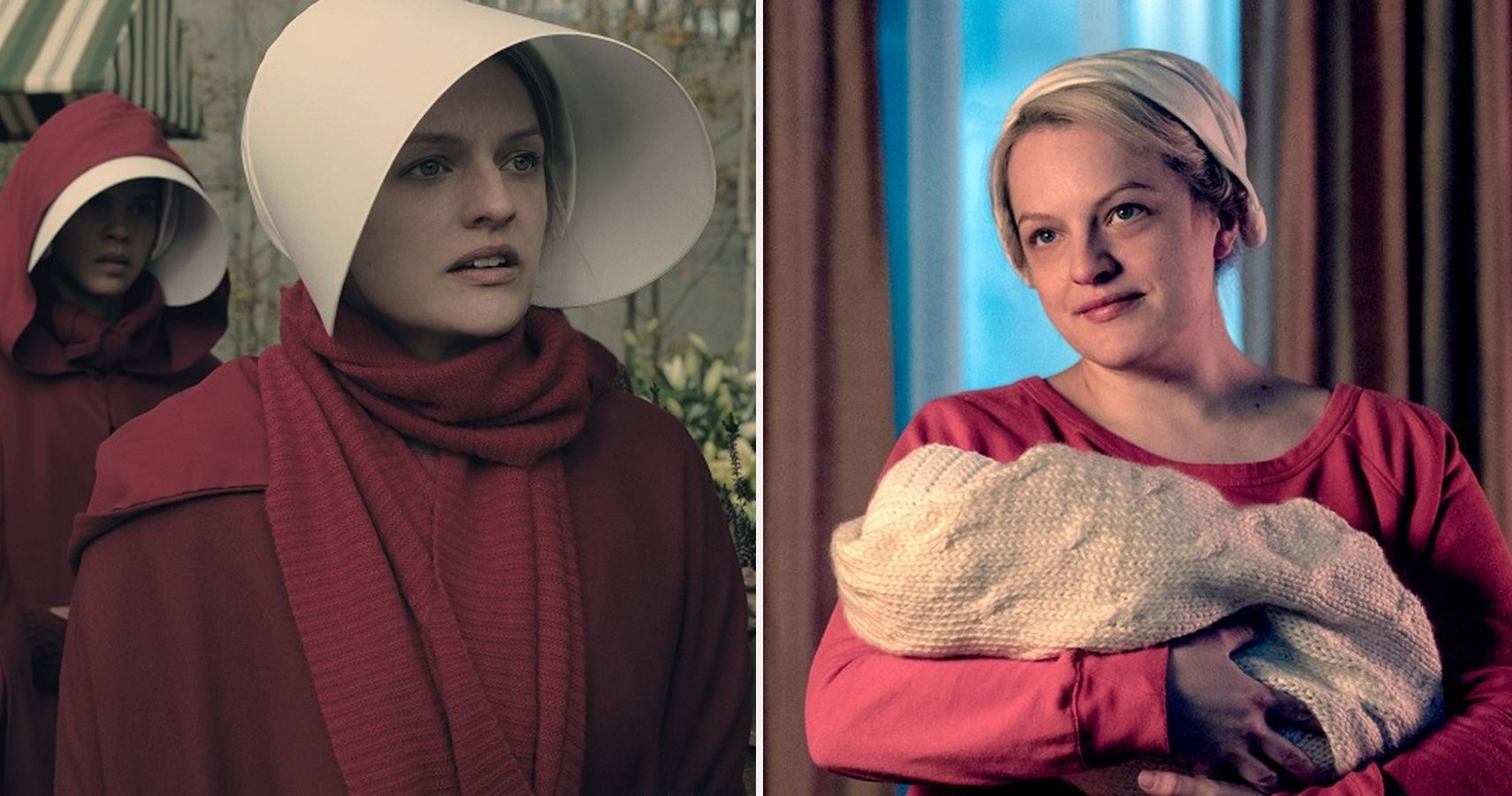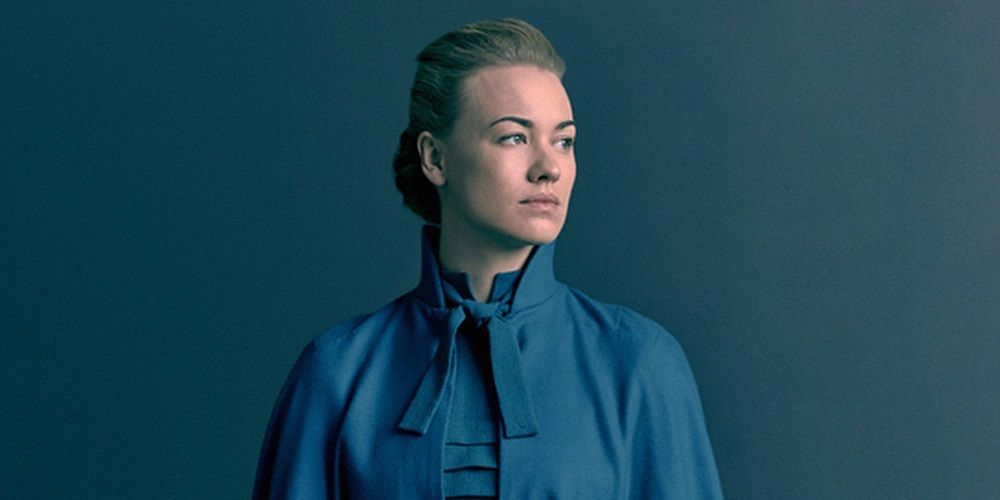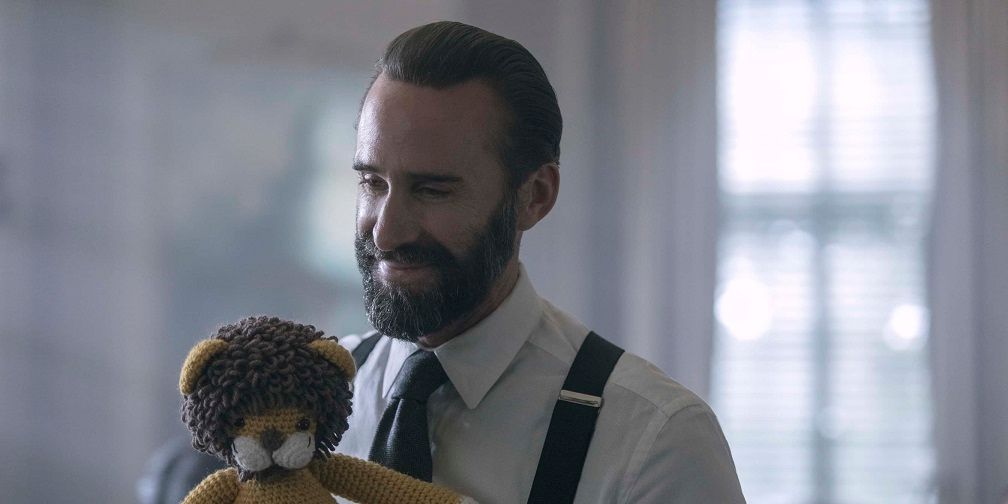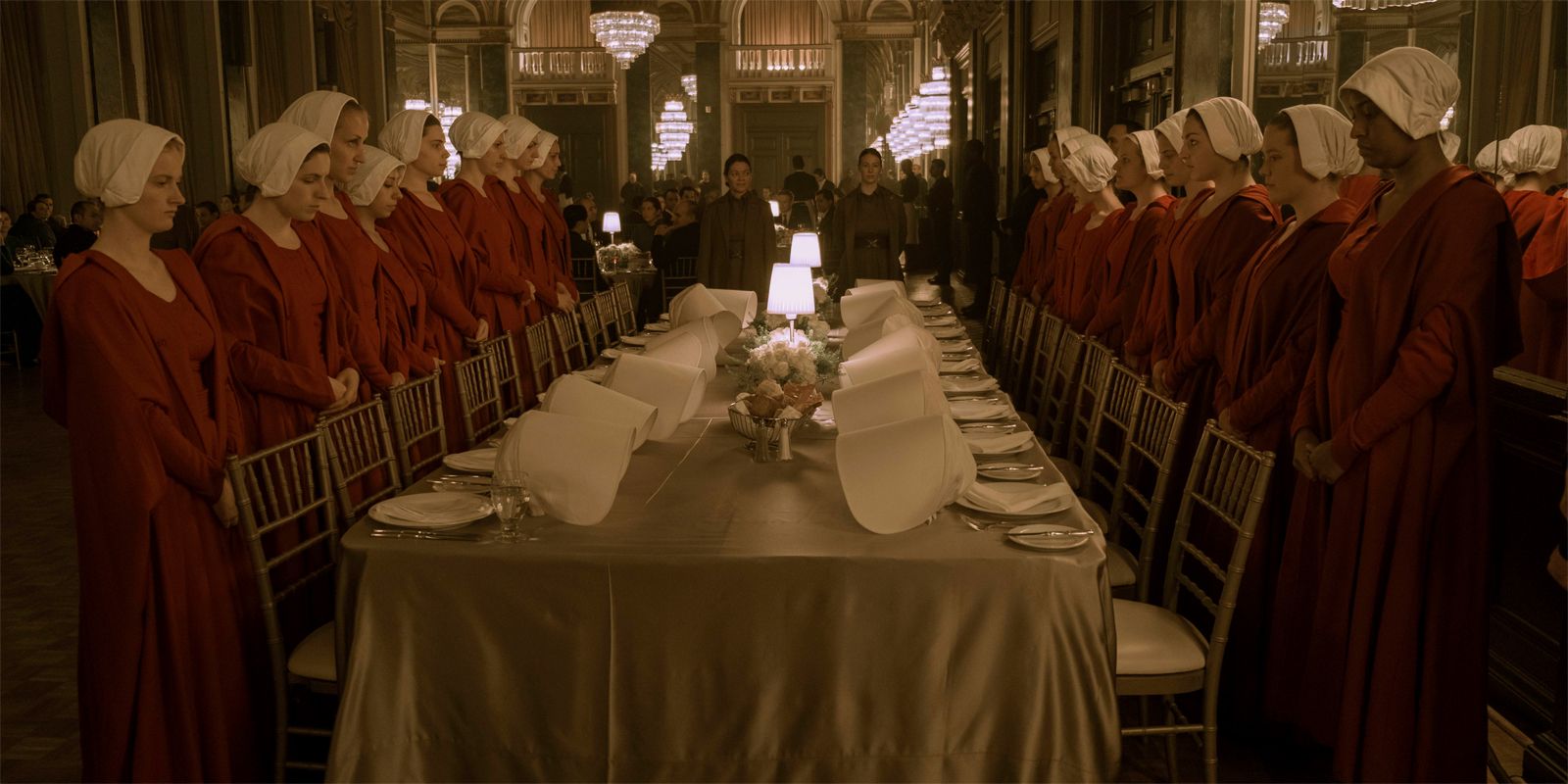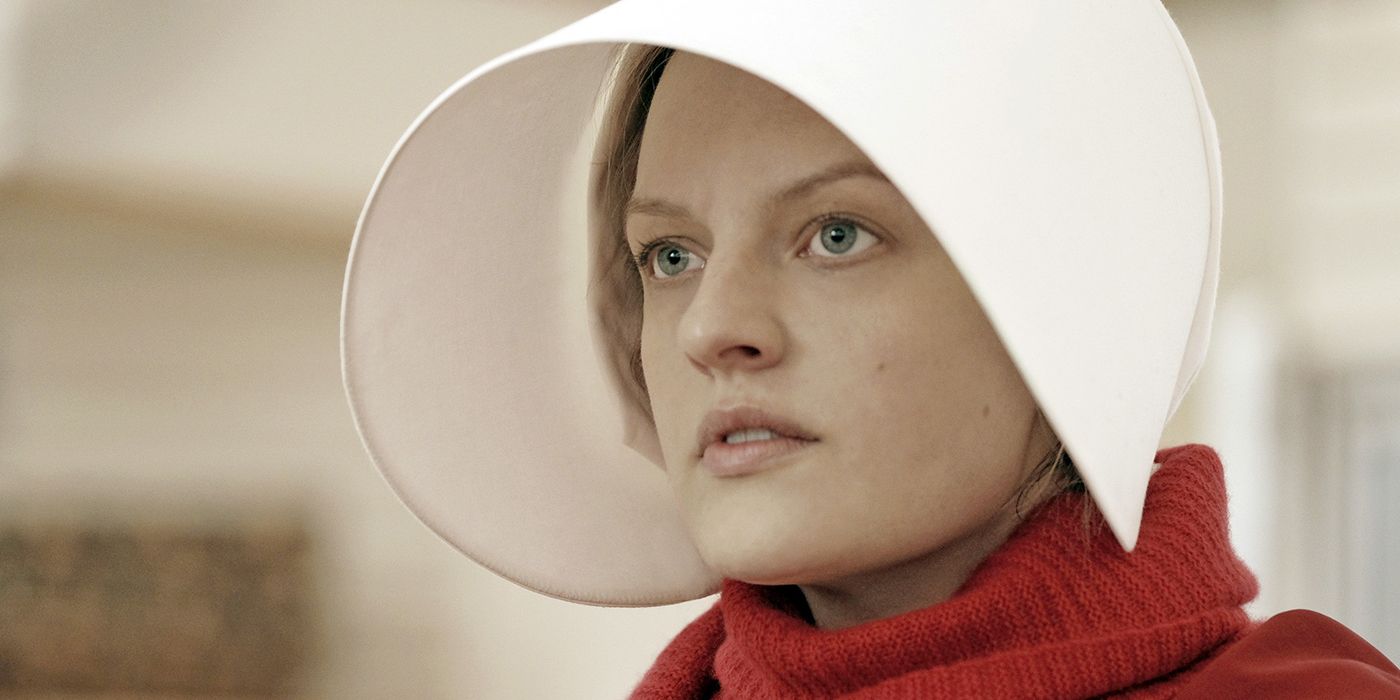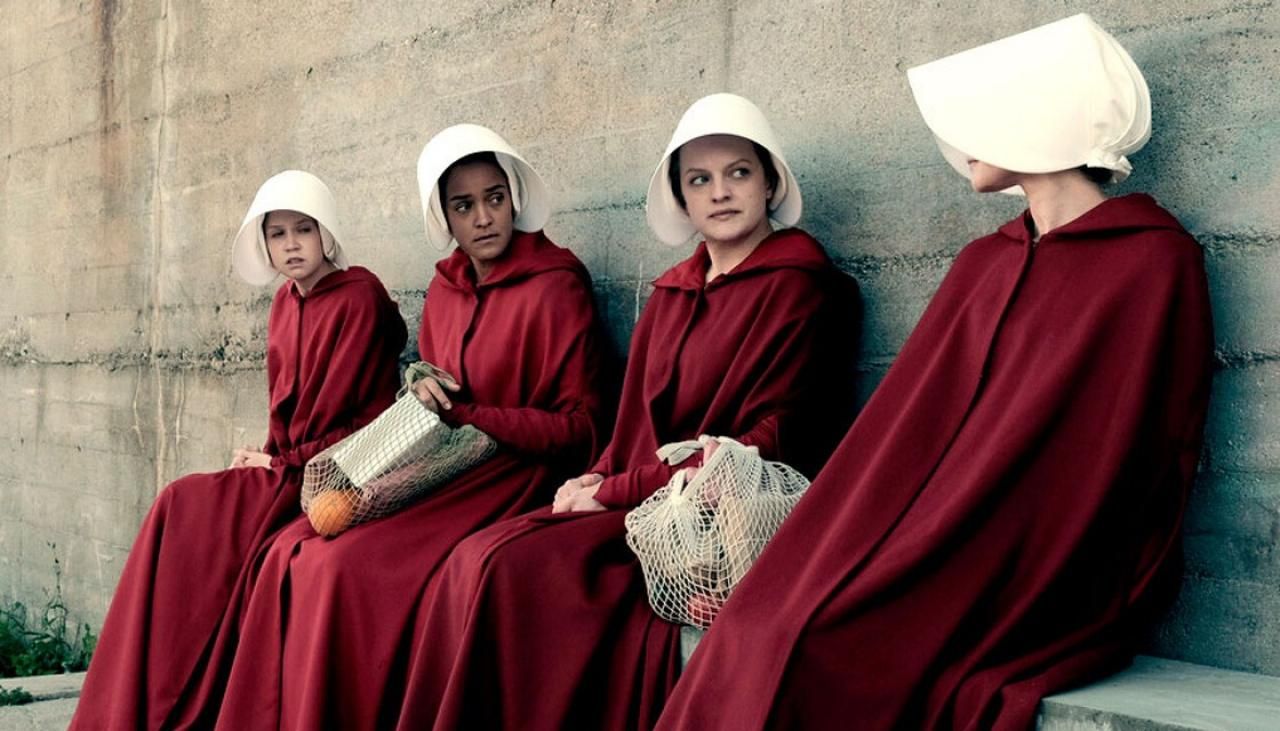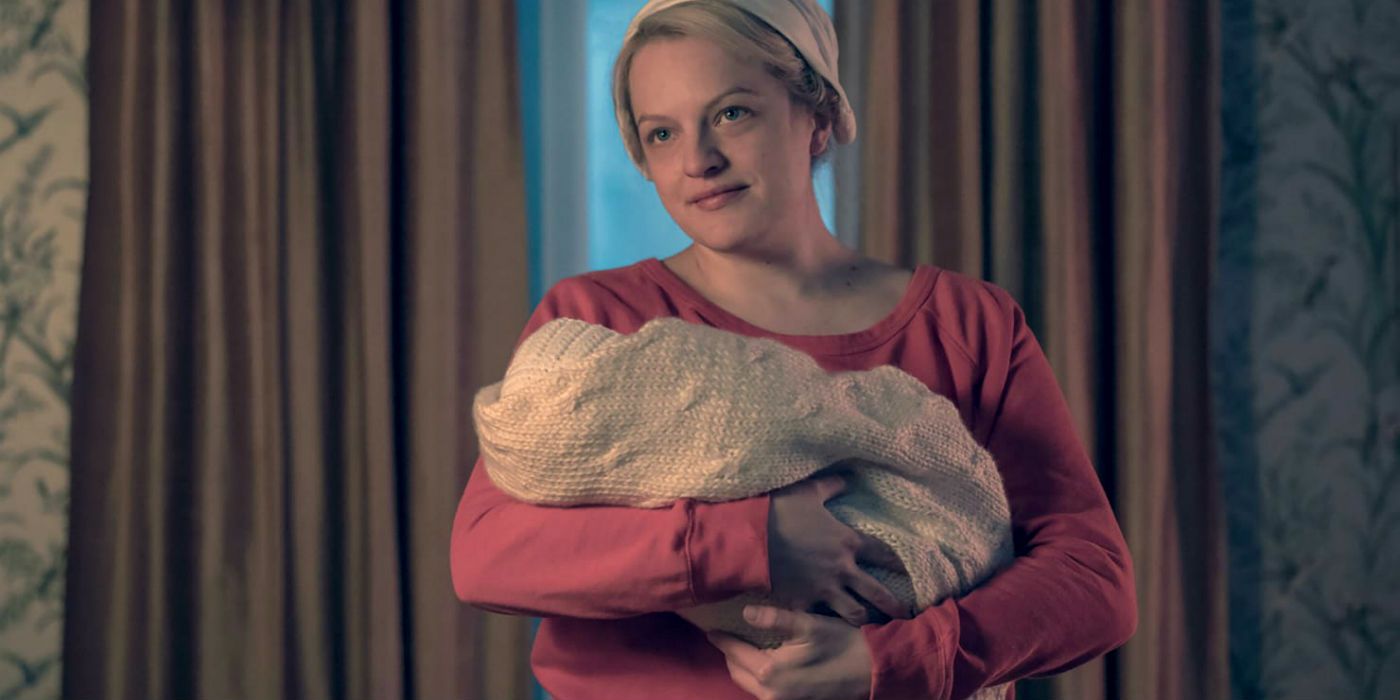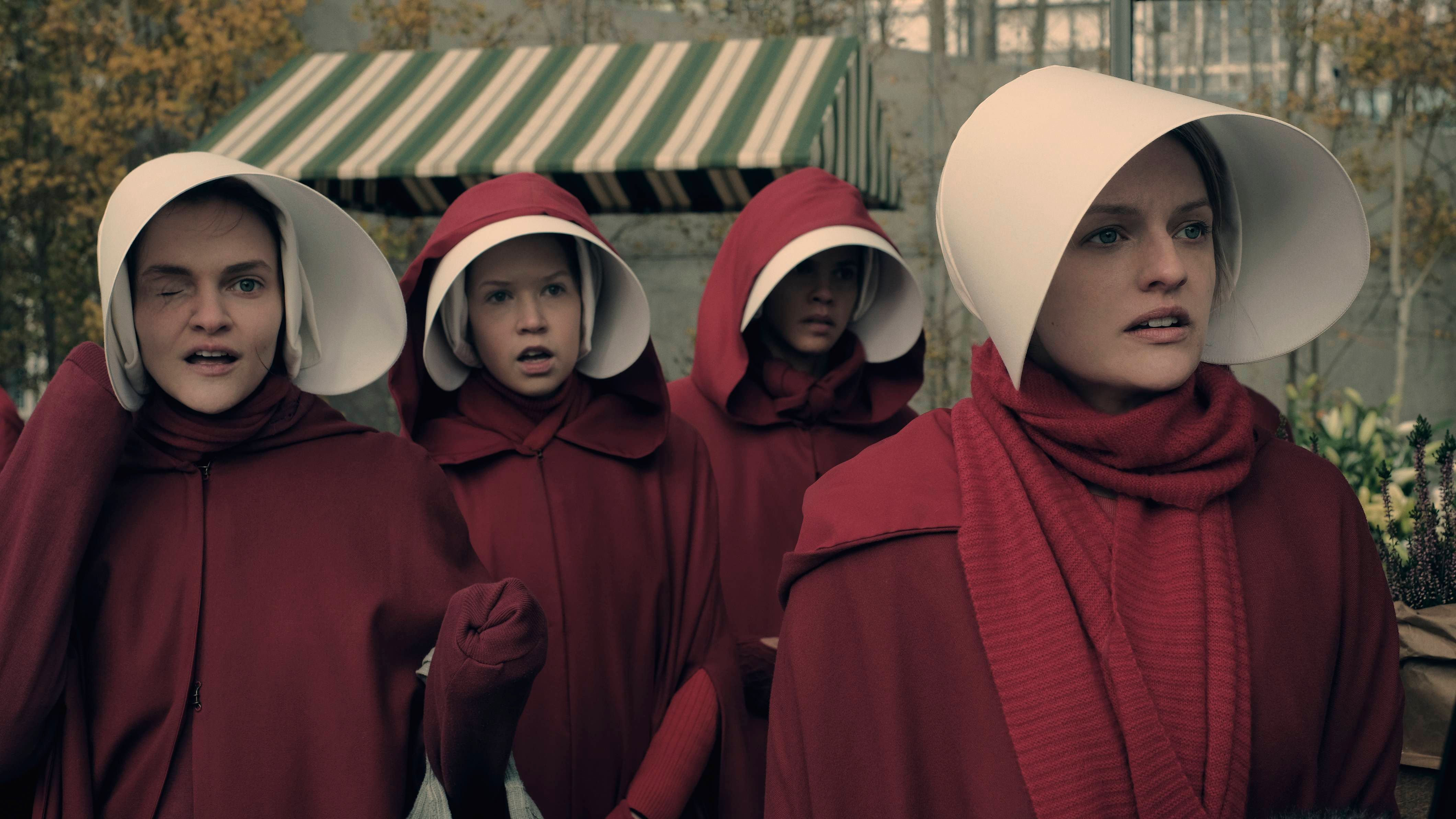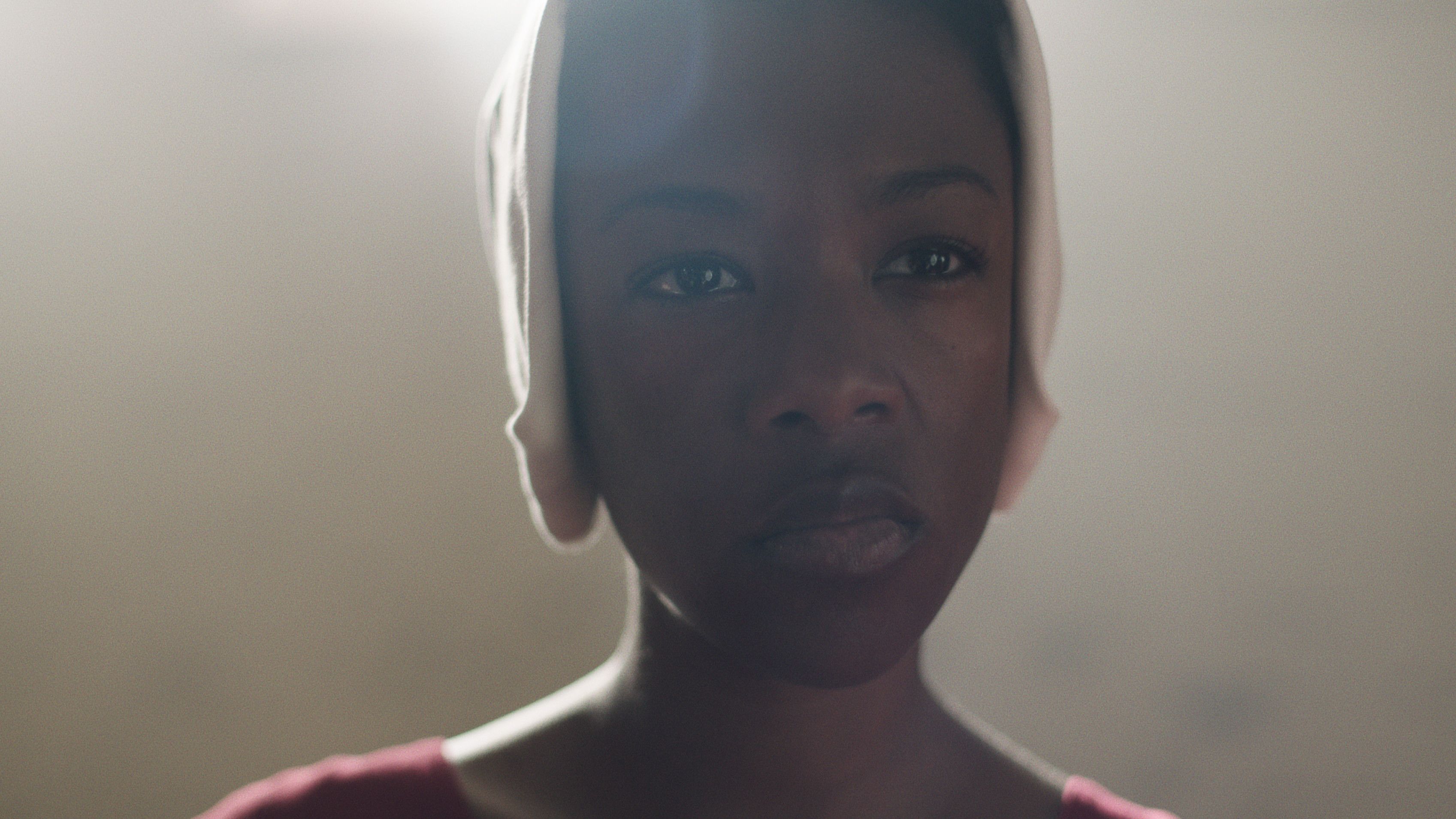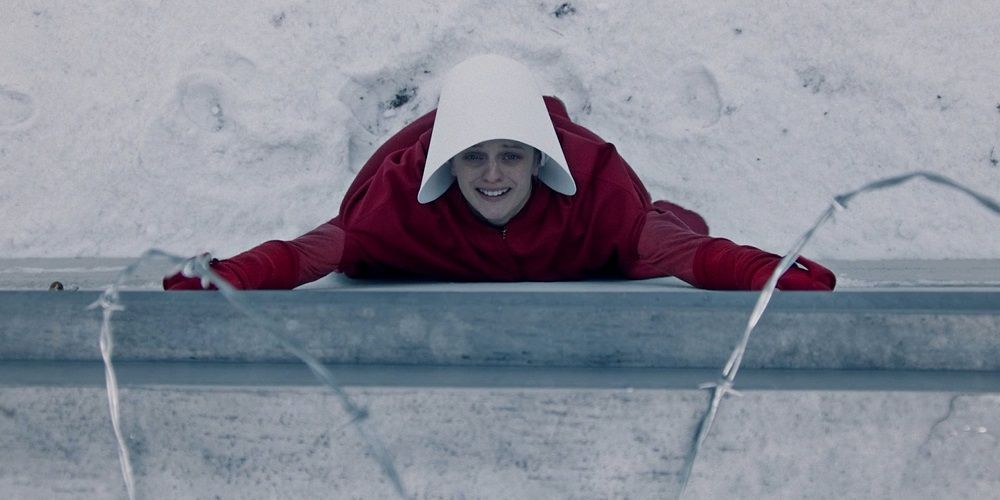The Handmaid's Tale wrapped on its third season recently with a more titillating cliffhanger than its previous seasons. June aka Ofjoseph (Elisabeth Moss) manages to lose her mental stability, sneak fifty children out of Gilead and eliminates multiple leaders from the New Order in just thirteen episodes.
RELATED: The Handmaid's Tale: 10 Things That Only Make Sense If You Read The Book
The totalitarian saga is inspired by Margaret Atwood's 1980's novel of the same name. And despite the fact that the book had already been made into a feature-length film in 1990, the feminist message ingrained in Hulu's original series could not be more inviting in today's social climate. The fight and literal "girl power" that is currently rising on the show is on par with contemporary movements (although in a much more barbaric manner).
And you don't have to be a feminist to enjoy June's quick whips and sarcastic stream of consciousness. Here are the best feminist quotes from the entirety of The Handmade's Tale.
"Even the righteous need a little show business."
Starting off with Serena Joy even though she's the antithesis of feminism. This quote comes from season one when having a child is at the forefront of Serena's mind and the ways of Gilead are blind to her. This quote is possibly a creative version of a Bible excerpt which often speaks to the righteous. One Proverb says, "The righteous get what they want, but the wicked will get what they fear most."
In this case, Serena sees herself as righteous, albeit, at the expense of other women. She's one of the few remaining women who hold an ounce of power, so it's both refreshing and disturbing to see her point of view.
“Go f*** yourself, Fred.”
This quote was made by Offred in season 2's "The Word" when it's clear that June has dominance over Fred Waterford. Fred, being at the top of the totem pole as a Commander, releases his weaknesses at the hands of his handmaid.
Over the course of the series, he becomes more and more susceptible to June as a whole, giving her leeway to say things like this to him without repercussion.
“They should have never given us uniforms if they didn’t want us to be an army.”
This is an extremely bold observation that June makes after they refuse to stone her friend, Janine. Just the thought of a mutiny is enough to get a handmaid on the wall, but this thought seems to have only pushed June forward. It was in this unity that June realizes the hole in Gilead's plan.
The handmaids, Marthas, and even the children serve a larger front so that, even though they don't hold the power forthright, they have the potential to steer their society in their direction.
"Is this enough for you?"
June reunites with her best friend, Moira (Samira Wiley), in season one, and it's clear that her friend (once a vigorous fighter) has been defeated by their circumstances.
RELATED: The Handmaid's Tale: 10 Times Serena Joy Waterford Was The Worst Person On Earth
In the depressing walls of Jezebels, the local speakeasy and brothel, June slaps away this negativity by acting as the only source of reason, reminding her friend exactly what the reality is (and shouldn't be) of their new so-called life.
"Don't let the bastards grind you down."
The actual quote from the show (and the book) is a made-up Latin phrase that says "Nolite te bastardes carborundorum" which loosely translates to "Don't let the bastards grind you down."
In real life, this quote became famous amongst feminists as it reflects the overgrowing concern of repression concerning female equality. Of course, the situation that June and her fellow handmaids undergo are much more extreme, but it still speaks to today's female visionaries all the same.
“Never mistake a women’s meekness for weakness.”
This quote from the first season of The Handmaid's Tale serves as foreshadowing toward's the events to come. Zabryna Guevara, who plays the role of Ambassador Castillo, recites this line to remind June that those shunned should not be underestimated.
Coincidently, Mrs. Castillo's own meekness gets in the way when she refuses to help the handmaids due to her country's own reproduction complication.
"But maybe we're stronger than we think we are."
This season three quote came as somewhat of a relief to viewers, considering June's entire persona seemed to be dangerously spiraling. In her moment of weakness, she seems to remember that she has been strong enough to overcome the obstacles of Gilead.
RELATED: The Handmaid's Tale: 10 Things We Still Need To Know About Nick Blaine
And further still, she reminds the others to remember this, insinuating that as a united party, they are stronger than Gilead can handle.
"Then you need to keep [it] together."
This line becomes somewhat of a mantra for June. Moira reminds her friend that she has her daughter to be worried about. In order for them both to see each other again (and survive) this is exactly what she needs to do.
Not that Moira herself doesn't need this reminder from time to time. June repeats the same line to her friend when Moira appears to believe that all hope is lost. It appears to serve as the spark that they need in order to keep going.
"Now I'm awake to the world."
In this soliloquy, June recounts the events that gave hints to the rise of Gilead. She goes on to say, "When they slaughtered Congress, we didn't wake up. When they blamed terrorists and suspended the constitution, we didn't wake up then, either. Nothing changes instantaneously."
The line where she says she's now "awake" to the world alludes to the fact that June will not dare let this type of environment thrive for much longer. The quote comes from season one and is one of the initial revelations that June has that leads to her uprising.
"I will not be that girl in the box."
In this scene, Serena Joy tries to manipulate June's emotions by giving her a gift. The small music box has a dainty ballerina in it, one that will only dance when she is given permission by way of opening her box.
June sees the irony in this gift and in that moment, she makes a promise to herself not to become that girl in the box: trapped, controlled, and manipulated.

